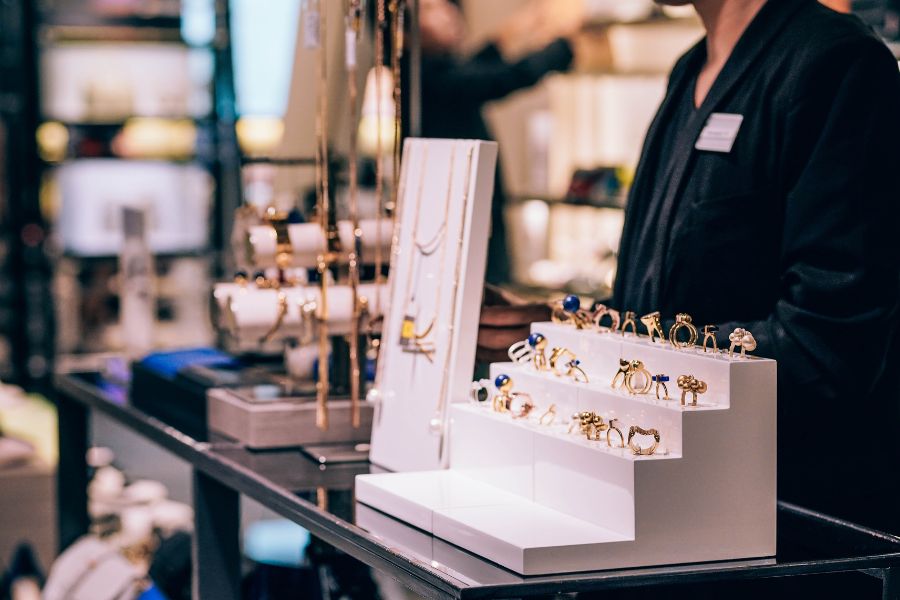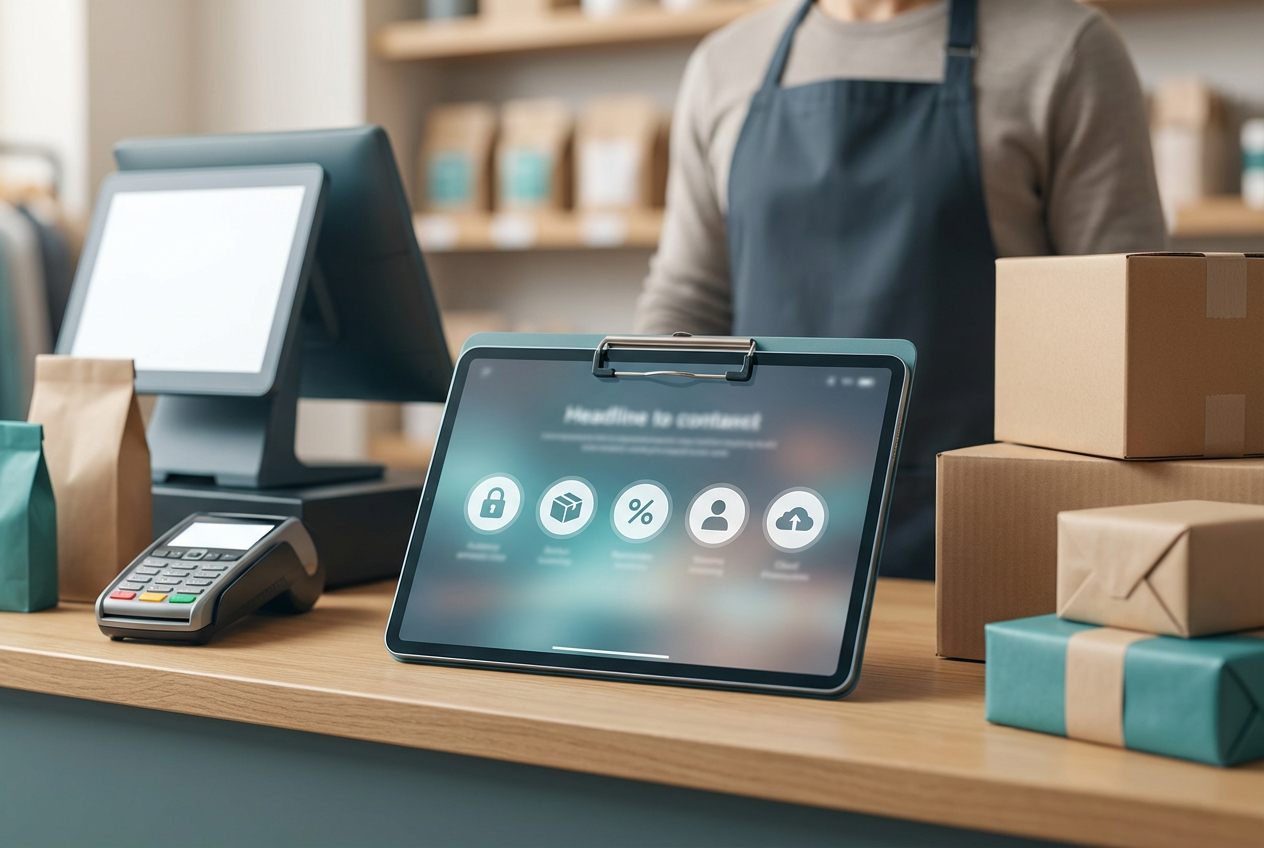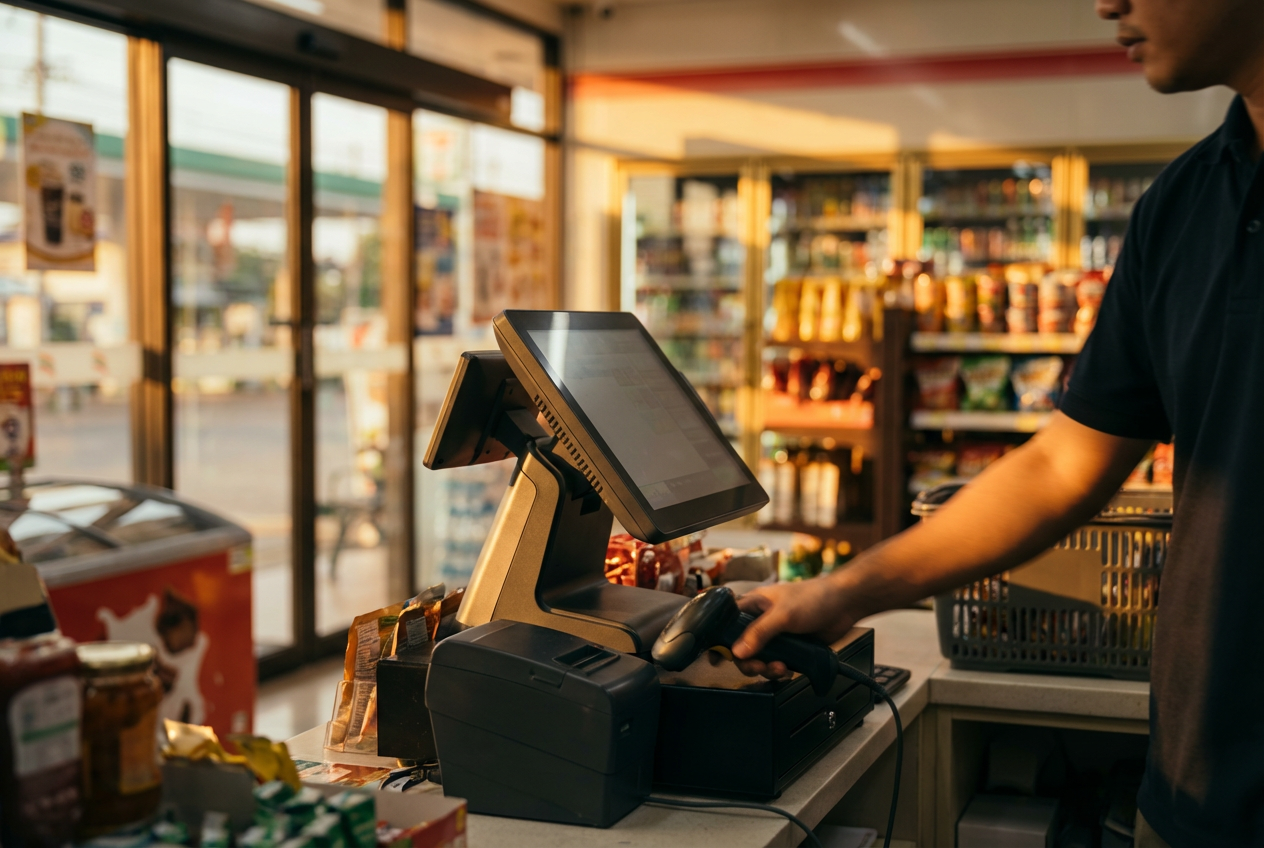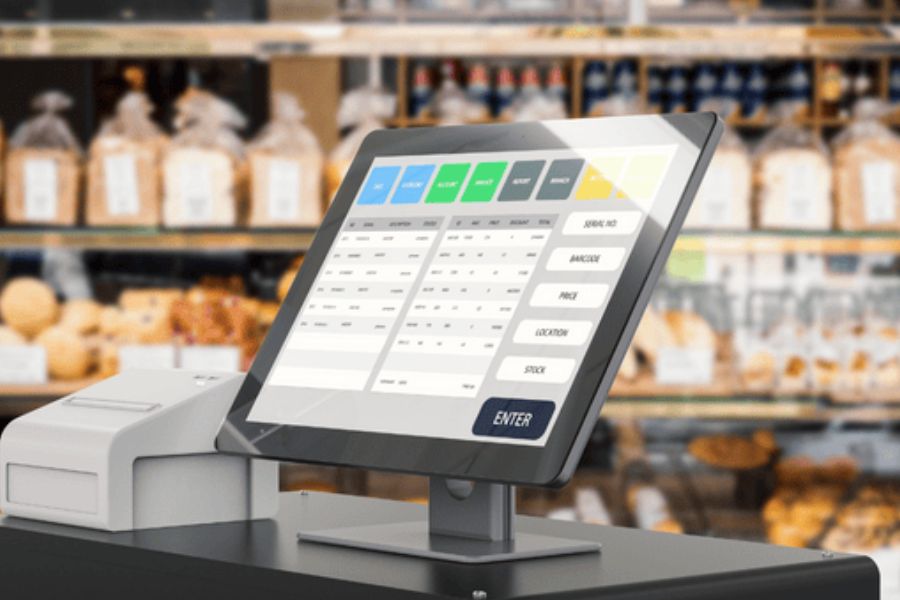Managing a luxury jewelry business demands precision, personalization, and operational control. From handling high-value inventory to delivering bespoke customer experiences, the technology behind your storefront can define success or stagnation.
This article, brought to you by ConnectPOS, highlights five top Jewelry POS Indonesia systems suited for high-end retailers in Indonesia and Southeast Asia. Drawing from years of experience in omnichannel retail, ConnectPOS focuses on real business needs over surface-level features. If you’re running a boutique or a growing chain, these insights will help you choose a system that matches the sophistication of your jewelry business.
Highlights:
- Key factors Indonesian luxury jewelers should consider when choosing POS software, include real-time inventory sync, customer relationship management, and regional payment/tax support.
- Top 5 Trusted Solutions such as ConnectPOS, The Edge, Square, Shopify, and Orderry, each offering specific advantages for managing high-value items, custom orders, and omnichannel operations.
Criteria For Selecting Jewelry POS Indonesia For Jewelry And Luxury Retailers
Revenue in the luxury jewelry segment in Indonesia is projected to reach US$350.29 million in 2025. The market continues to expand at an expected annual rate of 6.96% from 2025 to 2030.
This steady rise reflects stronger demand for craftsmanship, personalization, and rare materials, factors that place new demands on retail operations. Jewelry retailers in Indonesia face very specific workflows. They handle custom requests, high-ticket purchases, detailed inventory tracking, and often serve customers both in person and online. When the POS system doesn’t align with these realities, it leads to errors, delays, or broken trust with buyers.
That’s why decisions around retail systems should come from actual store experience. What matters most is whether the tool fits real usage, not how it is advertised.
What to examine when evaluating the Jewelry POS Indonesia market:
- Inventory handling built for precision: Look for solutions that support stone-level inventory, certificates, and custom SKUs without requiring excessive manual tracking. The system should keep a clean record of raw materials, semi-finished pieces, and finished items across branches and warehouses.
- Support for made-to-order and special orders: High-end customers often expect customizations. A suitable POS tracks client preferences, manages production timelines, and reflects real-time status from consultation to delivery.
- Pricing transparency and tax compliance: Jewelry pricing involves labor, materials, design premiums, and discounts. The POS should handle complex price structures and support Indonesian VAT and PPN standards without workarounds.
- Security protocols tuned for high-value items: Control over cashier permissions, refund activity, and stock transfers should be strict. Look for audit trails, role-based access, and the ability to flag suspicious behavior instantly.
- Customer profiles that support relationship selling: A client buying a necklace today may return next quarter for earrings. The POS should keep rich customer profiles with purchase history, preferences, sizing, and special occasions to support staff in delivering tailored service.
- Sales team accountability: Commission tracking by salesperson, split sales, and performance dashboards allow better internal management and motivation. This is especially useful in boutiques where sales are driven by personal rapport.
- Support for multiple outlets and currencies: Many Indonesian jewelers serve customers across Bali, Jakarta, and Surabaya or sell to tourists. Systems must handle pricing and reporting across regions and currencies.
- Integration-readiness with CRM and ecommerce: A POS that sits in isolation will hold back growth. Even without full ERP implementation, it should communicate well with website carts, marketing platforms, or loyalty programs.
- Service and vendor reliability: Response time, local presence, and clear upgrade paths matter just as much as the software itself. Jewelry retailers can’t afford system outages or poor after-sales support during peak sales periods.
In Indonesia’s luxury market, trust builds slowly and breaks fast. A jewelry POS should act as both a transaction tool and a foundation for brand credibility. Choices should be made with a long lens, not just the next month’s KPIs.
Best 5 Jewelry POS Indonesia Designed For High-End Jewelry Stores
Jewelry store POS software reached a global market value of USD 1.5 billion in 2023 and is forecast to climb to USD 4 billion by 2030, with steady growth at 10% annually between 2024 and 2030.

In Indonesia, the demand of Jewelry POS Indonesia is shaped by luxury retailers looking for tighter inventory control, personalized service, and technology that matches the expectations of premium customers.
ConnectPOS
ConnectPOS is a jewelry POS Indonesia solution built to support jewelers managing both online and offline operations. It syncs inventory, customer data, and orders in real time, which supports accurate tracking of high-value items, product variations, and personalized services. E-commerce integration optimizes daily operations without manual corrections.
►►► Optimal solution set for businesses: Multi store POS, Next-gen POS, Inventory Management Software (MSI), Self Service, Automation, Backorders

Developed in Vietnam and trusted across Asia, ConnectPOS fits the Indonesian jewelry market with support for Bahasa Indonesia, local taxes, and regional payments. It handles split payments, custom orders, and detailed customer profiles, which are key needs for jewelers offering consultative selling and tailored experiences.
Features:
- Inventory Management Software (MSI): Inventory, orders, and customer data are updated immediately across online and offline channels. MSI’s feature of ConnectPOS helps maintain accurate stock levels, prevent duplicate sales, and ensure consistent data across all devices used by staff at different locations.
- Custom Order Handling: Jewelry stores dealing with made-to-order items benefit from the ability to take custom requests like engraving, ring sizing, and stone selection. Sales staff can input specific requirements directly into the system, ensuring clarity for fulfillment teams.
- Multi-Location Inventory Control: ConnectPOS helps retailers manage stock distributed across showrooms, warehouses, and repair centers. Each location’s inventory is visible within a single dashboard, simplifying transfers and replenishments without manual coordination.
- Staff Permission & Sales Tracking: Managers can assign roles with controlled access. Each transaction is linked to a staff member, supporting commission tracking, performance reviews, and internal security.
- Customer Purchase History: Every in-store and online purchase is saved under unified customer profiles. Sales associates can view past preferences, ring sizes, or favored designers, enabling more tailored consultations and product recommendations.
- Offline Sales Mode: Transactions can proceed even when internet connectivity drops. Once back online, data syncs automatically, removing the need to track and re-enter missed sales.
- Localized Tax and Currency Setup: ConnectPOS accommodates Indonesian tax rules and supports the Indonesian Rupiah. This includes VAT and customs tax configurations per region, helping businesses meet local compliance without external systems.
- Barcode Scanning and Smart Search: Staff can quickly locate items using barcodes or keyword-based search, useful for large collections and back-of-house stock checks.
- Omnichannel Promotions and Loyalty Programs: Discounts and loyalty program points are integrated to be applied uniformly across online and offline touchpoints. This builds stronger customer relationships and supports marketing campaigns run through Shopify.
- Multi-Payment Options and Split Payments: Supports cash, card, QRIS, e-wallets, or a combination in one transaction. Jewelry buyers often use split payments for high-value purchases, which ConnectPOS handles smoothly.
- Dashboard Reporting and Analytics: Provides daily insights into sales performance, staff productivity, and product trends. Business owners track progress using clear visual data broken down by time, location, or staff member.
- Device Flexibility: Compatible with desktops, tablets, and smartphones, giving stores flexibility in how they deploy POS terminals. These suit showrooms where staff may move between counters and customer seating areas.
Pricing: ConnectPOS follows a quote-based structure. Pricing varies by business needs, number of locations, and volume. Trial options are available. Businesses requiring deeper customization can request enterprise pricing directly through ConnectPOS sales consultants.
The Edge
The Edge was built with one trade in mind: jewelry. Designed in the U.S. and led by industry veteran Dick Abbot, its foundation reaches back to the 1980s. The current product, launched in 2004, reflects decades of iteration and feedback from luxury retailers. Built specifically for gemstone and precious metal businesses, it focuses on inventory precision, customer relationships, and operational discipline.
For jewelers seeking a jewelry POS software Indonesia solution with a long-standing track record, The Edge stands out as a highly specialized system tailored for the complexities of the trade.
Features:
- Client Management Focused on Jewelry: Tracks purchase history, ring sizes, anniversaries, and client preferences. Allows grouping of spouse or partner profiles for more targeted product suggestions.
- Customizable Workflows: Supports custom fields tailored to the store’s processes, from personalized service notes to unique order tracking methods.
- Specialized Inventory Tracking: Built for diamonds and precious metals. Records diamond gradings, chain styles, metal types, and pricing. Supports RFID tagging for security and item-level visibility.
- Integrated CRM Tools: Includes appointment scheduling, store credit account management, loyalty programs, and saved payment methods for returning clients.
- Vertical-Specific Integrations: Connects with tools common in jewelry operations such as ID/license scanning, insurance partners, warranty handling, and accounting systems.
- Detailed Reporting and Analytics: Generates reports on best-selling items, sales by employee, top-performing time slots, and customer spend analysis. Provides clear data breakdowns to support store decisions.
Pricing: The Edge requires a one-time purchase. For a single store with one workstation, the cost is $4,600. A three-workstation license comes to $5,700. For chains, two stores with six total workstations cost $12,450.
All packages include training. An additional deep-dive seminar is available for $1,000.
Optional peripherals include:
- Tag Printer: $515
- Barcode Scanner: $315
- Jewelry Imaging System: $215
Square POS
Square was created in 2009 to solve a simple problem that is card payments without bank complications. It has since expanded across continents, attracting entrepreneurs for its plug-and-play setup and transparent costs. As a jewelry POS Indonesia option, Square appeals to stores that prioritize quick launch, mobile use, and integrated payments. The system adapts well to craft-focused brands, especially those selling at events or pop-up stores, making it a flexible solution for jewelers testing new markets.
Features:
- Quick Setup and Mobility: Runs on tablets and mobile devices with minimal setup. Ideal for events, markets, and traveling retail staff.
- Built-in Payments System: Payment processing is included out of the box, no third-party integrations required. Supports card, contactless, and digital wallet payments.
- Basic Inventory and Customer Management: Even the free plan includes inventory tracking and basic customer profiles, making it practical for startups and small-scale jewelers.
- Hardware Flexibility: Works with a wide range of Square hardware, from portable readers to full countertop kits, depending on the retailer’s space and setup needs.
- Expandable Features with Paid Plans: Upgraded tiers provide purchase order tracking, vendor management, detailed analytics, employee scheduling, and time tracking.
- Ecommerce Compatibility: Syncs with online stores through Square Online and other platforms, supporting consistent inventory and order management across channels.
Pricing: Square follows a monthly subscription model, with a free entry-level option that includes basic sales, inventory, and customer tracking.
- Subscription Plans:
• Free: $0/month – 2.6% + 10¢ (in person), 2.9% + 30¢ (online)
• Plus: $89/month – 2.5% + 10¢ (in person), 2.9% + 30¢ (online)
• Custom: Tailored pricing and rates per business - Hardware Packages:
• Register Retail Kit: $1,959
• Register Kit: $1,269
• Countertop Kit (iPad): $729 - Individual Hardware:
• Square Register: $799
• Terminal: $299
• Stands: $149
• Readers: Free – $59
Orderry
Built specifically for service-based businesses as a jewelry POS software Indonesia, Orderry adapts well to jewelry repair environments. With its structured job tracking and data-rich work order system, it helps stores stay organized, even when handling complex restoration work. Founded in 2015 in Kyiv, Ukraine, Orderry now supports repair shops globally with cloud-based software focused on process clarity and operational control.
Features:
- Repair Order Management: Detailed workflows help manage intake, diagnostics, and repair tasks. Custom fields allow tracking of metals, carats, weights, and historical records.
- Customer Alerts: Automated messages keep clients informed during each step of the repair process, from drop-off to pick-up.
- Integrated Communication Tools: Messaging platforms and social media integrations let staff respond to customer inquiries directly from the system.
- Reporting Dashboard: Visual data charts reveal work order volume, average turnaround times, item popularity, and team productivity.
- Remote Oversight: The mobile app, “Business Insights,” provides sales data, reports, and internal messages, accessible outside of the store.
Pricing: Orderry offers four subscription plans:
- Hobby: from $39/month – 2 users, 1 location, 100 jobs/month
- Startup: from $69/month – 3 users, scalable to 15; CRM and scheduler included
- Business: from $99/month – 3 users, scalable to 150; SMS alerts and warehouse tools
- Enterprise: from $199/month – personalized support and system configuration for large teams
Yearly billing discounts are available.
Shopify POS
Originally developed for an online snowboard shop, Shopify POS has grown into one of the world’s leading commerce platforms. Many luxury retailers choose it as a jewelry POS software Indonesia solution to unify their in-store operations and eCommerce strategies. It connects physical stores, online marketplaces, and webshops within a single, synchronized system.
Features:
- Sales Channel Syncing: Track inventory and customer orders across in-store registers, online marketplaces, and social platforms.
- Storefront Design and Promotions: Retailers can customize product pages with media-rich displays and promotional tools tailored to luxury jewelry.
- Inventory Tracking: Data updates in real time across all locations. Merchants can assign SKUs, sort collections, and analyze stock movement.
- Fulfillment System: Merchants manage order packing, shipping label creation, and routing from one dashboard.
- Support Access: 24/7 chat, phone, and email support keep issues contained before they affect sales.
Pricing: Shopify has five subscription tiers:
- Basic: $39/month (or $29 billed annually) – best for solo operators
- Shopify: $105/month (or $79 billed annually) – ideal for teams
- Advanced: $399/month (or $299 billed annually) – includes custom reports and faster checkout
- Plus: $2,300/month – built for enterprise-level merchants with large retail networks
- POS Pro Add-On: +$89/month per location – unlocks advanced in-store features
Hardware Options:
- Wired Countertop Bundle: $999
- Terminal Kit for iPad: $459
- POS Go Device: $299
- Cash Drawer: $139
- Tap & Chip Reader: $49
- Barcode Scanners: $199–$289
- Receipt Printers: $259–$399
FAQs: Jewelry POS Indonesia
Which jewelry POS software Indonesia is best suited for high-end jewelry stores in Indonesia?
It depends on the business model. ConnectPOS is strong for omnichannel operations with local payment and tax support. The Edge serves luxury retailers focused on precious stones. Square fits mobile sellers or pop-up formats. Orderry supports repair-driven businesses. Shopify POS works best for online-first jewelers scaling into physical retail.
Are these jewelry POS Indonesia systems compatible with regional currencies and languages?
Top jewelry POS vendors like ConnectPOS provide local customization. For instance, in Indonesia, features include Bahasa Indonesia support, tax compliance, and regional payment gateways integration.
Can these systems manage complex jewelry orders like engravings or repairs?
Yes. ConnectPOS and The Edge handle custom orders and client history. Orderry is designed for repair workflows, tracking materials, tasks, and communication throughout the service cycle.
Conclusion
The five jewelry POS software Indonesia solutions we’ve looked at have specialized capabilities that meet the complex demands of high-value inventory, personalized customer service, and secure transactions. They also provide valuable data insights. Investing in a system that fits your store’s distinct needs lets your team work better, pleases your customers, and protects your most valuable assets. Don’t let outdated systems hold your business back.
Reach out to ConnectPOS today to see how our solutions can help your jewelry store flourish.
►►► Optimal solution set for businesses: Shopify POS, Magento POS, BigCommerce POS, WooCommerce POS, NetSuite POS, E-Commerce POS




